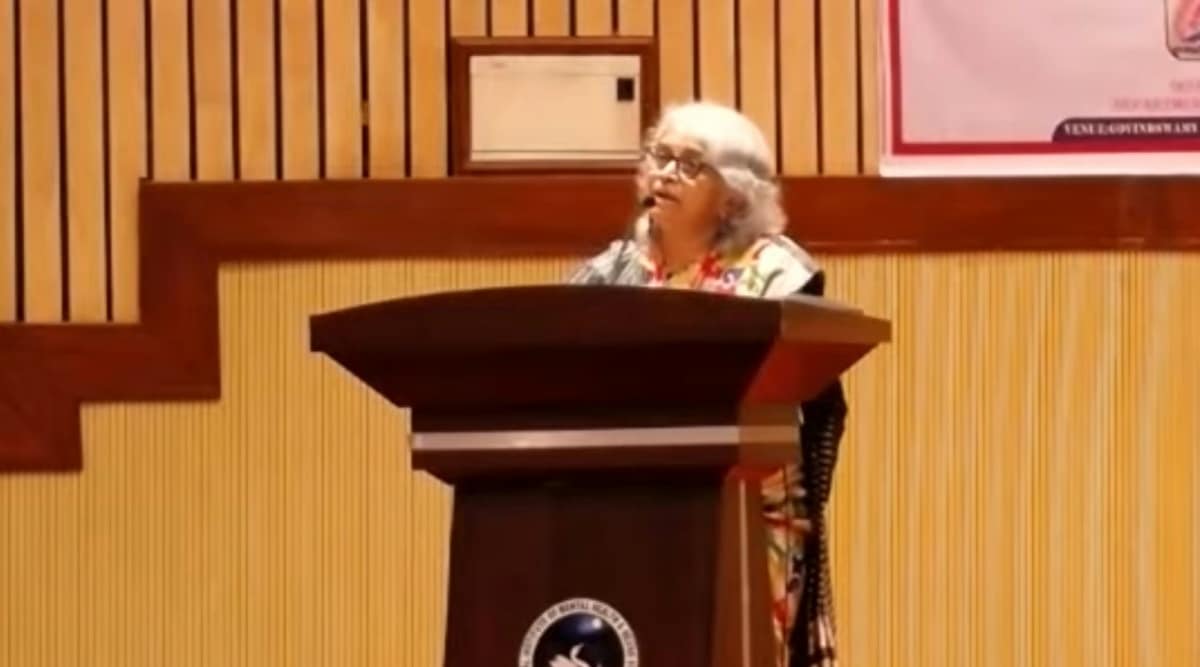 Dr Prathima Murthy, Director, NIMHANS (Express)
Dr Prathima Murthy, Director, NIMHANS (Express) The national tele-mental health programme announced in the budget on Tuesday will be useful in identifying mild forms of mental illnesses, which may not require medication or in-patient care, according to Dr Pratima Murthy, Director of National Institute of Mental Health and Neurosciences (NIMHANS).
“As per a recent national mental health survey, 10.4 per cent of people have a diagnosable mental health condition but that did not mean that everyone needs to be seen in a hospital,” Dr Murthy told the Indian Express.
The programme will include a network of 23 tele-mental health centres of excellence with NIMHANS being the nodal centre and IIIT, Bengaluru providing technology support.
“These centres have specialised mental health care resources, which will help the state government and Union Territories set up tele-health helplines to train counsellors to provide first-level psychological care. They will also be trained to identify people with severe mental illness like psychosis and behavioural disturbances and immediately advise them to go to a higher centre. A directory of higher centres will be maintained so people know where to go,” Dr Murthy said. NIMHANS already has experience in the area as it has been running psycho-social helpline during Covid, tele-counselling for tobacco cessation besides tele-mental health training for doctors at primary health centres, she added.
“We will use these resources together to provide a spectrum of care for people with mental health problems. It will also help reduce stigma as calling (on phone) is easier than visiting a mental health facility. In case somebody is troubled and does not have local support, he/she can call in at the helpline. There is someone listening at the other end who understands whether they need to reach out to the caller or the latter needs to see a specialised mental healthcare professional. Everyone gets a little bit and the treatment gap gets reduced,” Dr Murthy said.
Several other mental health professionals have lauded the move but said that it was simply not enough. According to a 2019 ICMR study, one in seven persons suffered from mental disorders of varying severity in the country.
Dr Harish Shetty, noted psychiatrist, said, “We are in the middle of a mental health pandemic. Setting up a tele-mental health helpline is a small gesture and we hope it multiplies. However, this is not enough. We need the kind of intensity on mental health that the Centre and states have shown in combating Covid. What is needed is a massive movement, not chicken feed. There are IIMs and IITs but no new institutes to tackle the issue of dearth of mental health professionals.”
Child and adolescent psychiatrist Dr Bhooshan Shukla said regional realities and needs are varied even as he questioned the “top-down” approach with the Centre identifying NIMHANS as a nodal institute. “There is enough talent in each state,” he said.
Psychiatrist Dr Bharat Vatwani said, “Recently, at a conference, the state director of health Dr Sadhana Tayade admitted that three districts (Satara, Hingoli and Bhandara) did not have a psychiatrist. Tele-medicine consultation will only partly fill the void. What we need are more psychiatrists and mental health professionals,” according to the Magsaysay award winner.
Dr Mohan Agashe, noted actor and founder-director of Maharashtra Institute of Mental Health (MIMH), which was made a Centre for Excellence in 2011, has made a strong case for a time-bound programme to address pertinent issues. “At times, there seems to be a time lag in what is declared by the government and what is implemented,” Dr Agashe said citing an instance when “it took more than 10 years to get administrative approval from the state to obtain the Centre’s funds granted to MIMH”. Each state’s needs are different and hence the activity should also be decentralised, Dr Agashe said as he pressed for definitive steps towards implementation and monitoring, “failing which it (the programme) would remain yet another announcement.”
- The Indian Express website has been rated GREEN for its credibility and trustworthiness by Newsguard, a global service that rates news sources for their journalistic standards.

